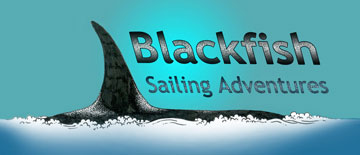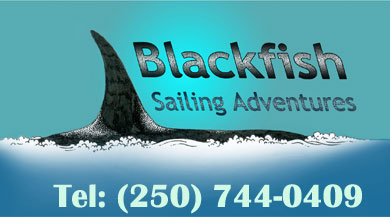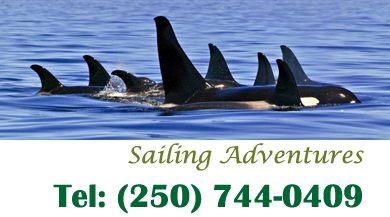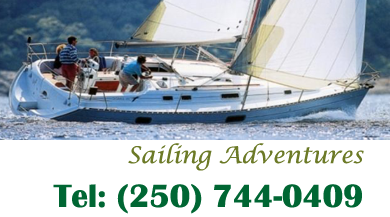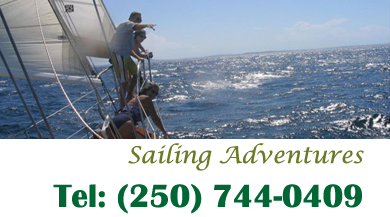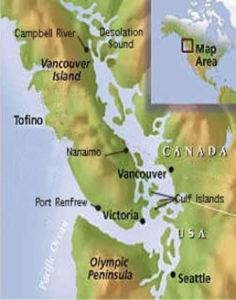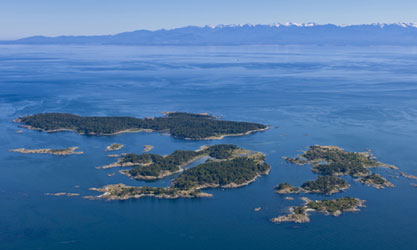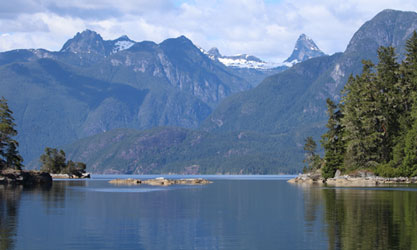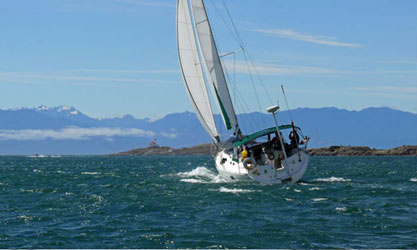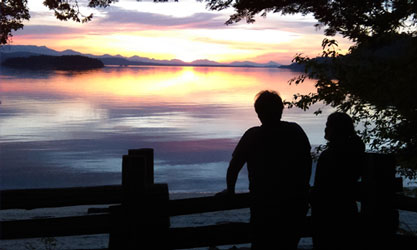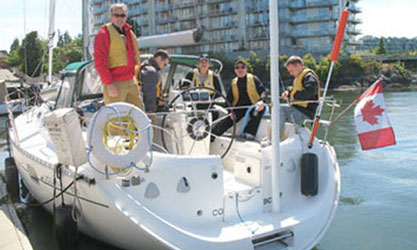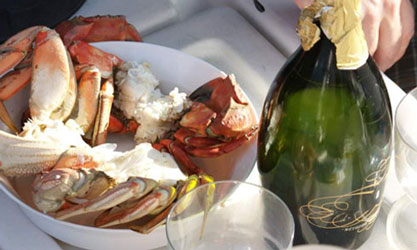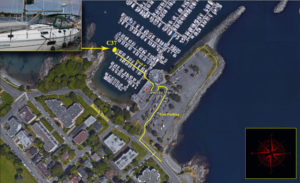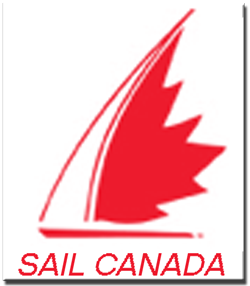FREQUENTLY ASKED QUESTIONS
1. What can we expect to see and experience in Victoria and on Vancouver Island? There are links below that will give you all the information you need and then some. Victoria and the Island is a magnificent place (the reason why so many people who have travelled the world do their best to try and live here). It is still on the edge of the “wild”. So, escaping to unique and tranquil places “off the beaten path” is still possible.
2. How do we get there? By air, there are many direct flights to Victoria International Airport and it is easily accessed from Seattle and Vancouver, the two closest major cities. Refer to the links below for transport here by air, bus and ferries.
3. What’s the weather like? Many people do not know that Victoria and the Island receive less rainfall during the summer than most other areas of Canada. If it were not for irrigation, our lawns and gardens would not be the attraction they are. Just come expecting lots of sunshine and temperatures in the comfy 20 deg C. or 70 degree F. range from June to the end of September. Bring a sweater and a windbreaker for sailing however, as ocean waters can create a cool breeze. Don’t be worried if your hotel does not have air conditioning, an open window generally suffices.
If you are confused with C (Centigrade) degree temperatures in Canada, you can convert to Fahrenheit by multiplying the C degree number by 2, then subtracting this result by 10%. Then add 32. For example: 10 deg. C is 50 deg F. If you got this, you can join our Science Club! For a good website describing the weather you can expect while on the island: Click Here! For an overview of weather any month of the year: Click Here!
4. What to wear on the boat? Always dress in layers as the weather may sometimes be a surprise. It will almost certainly be cooler on the water than on the land. Hats are a good idea, but make sure they will not blow off. It is important to bring the appropriate foot wear with good gripping soles that will not mark the boat. Bare feet are a good backup but there are a lot of toe-catchers on deck!
5. What should I bring on my overnight trip? We can give you a list of what to bring. The main concern is that you do not bring too much. If you have a lot then try packing it in several bags rather than one. Hard-shelled luggage with wheels is not practical for boats.
6. What is a typical sail training day like? (overnight trips) Our day begins with a leisurely breakfast, about 8 a.m. This gives us a chance to discuss our objectives and plans for the day. A weather, tide and current check helps us determine our destination and sail tactics for the day (with a “Plan B” should conditions change). Throughout the day, everyone is assigned different roles, in order to get that “hands -on” experience as Skipper, as Crew, and as Navigator. We usually have lunch underway and anchor for the night no later than 6 p.m. At some time during the day, we will go ashore to stretch our legs and do some exploring. Part of the evening is spent reviewing what we have done – and what we intend to do the following day. Everyone is expected to pitch in and take turns with the cooking and clean up. Except for the intermediate and advanced courses, we do not sail at night.
7. Where do we sleep? Our vessel features two separate cabins (one fore and one aft), each sleeping two persons comfortably. There is a settee in the salon (middle of boat) which makes into a double bed. There is a single berth in the salon (across from the settee) that can be made up for another person if needed. There is also the opportunity to sleep outside in the covered cockpit – a great option!
8. What about showers and toilets? Our Vessel is equipped with one head (marine toilet), and two showers; including one located on the swim grid. The boat also features hot and cold pressure water. For a change of scene and comfort, we usually make at least one pit stop while in the Gulf Islands, like Poets Cove on Pender Island. This beautiful resort features a warm swimming pool, hot tub and “unlimited” water for showering.
9. Will I get seasick? The short answer is: probably not. In the many years we have been sailing the waters around Victoria and the Gulf Islands, and the many hundreds of people we have taken on these trips, we have experienced only a handful of people with sea sickness. The waters we will be traveling are well protected by many islands, and there is little in the way of swells such as those commonly experienced on the West Coast of Vancouver Island. Nevertheless, for those of you who are susceptible to sea sickness, and do not want to take any chances, there are a variety of medications which might help. But take a good look at the side effects listed before deciding, as the risks in these waters may not be worth it.
10. What does CYA stand for? CYA is short for Canadian Yachting Association which now operates under the title of SAIL CANADA. This is the governing body that organizes the sport of sailing in Canada. It encompasses the provincial sailing organizations and the 300 plus sailing clubs throughout the country. Part of its mandate is to set and to maintain national standards for sail training. This it achieves through its Learn to Sail programs for small dinghy sailing, and its Learn to Cruise programs for large keelboats. Blackfish Sailing Adventures teaches the Learn to Cruise Program which focuses on the cruising life style.
11. Where can I get more information and answers? We would be glad to answer any further questions you may have. contact us!
Useful Transportation Links:
WestJet
Air Canada.com: Flights, Hotels, Cars, Travel info
Victoria Airport
Bus Connector on BC Ferries
BC Ferries
Port Angeles Ferry (M.V. Coho) to Victoria, BC
Clipper Ferry
Information on Victoria and BC
Parks Canada: Gulf Islands National Park Reserve of Canada
Tourism Victoria: the most comprehensive tour guide for Victoria and the South Island
Hello BC: the official travel Guide to British Columbia
Maps and a wealth of information on what to see and do for places on our sailing itinerary and elsewhere in B.C
Other Links
Sail Canada: all the information on sailing and cruising standards.
BC Sailing Association: This is the provincial arm of Sail Canada. It administers Sail Canada programs and provides information on sailing events.
